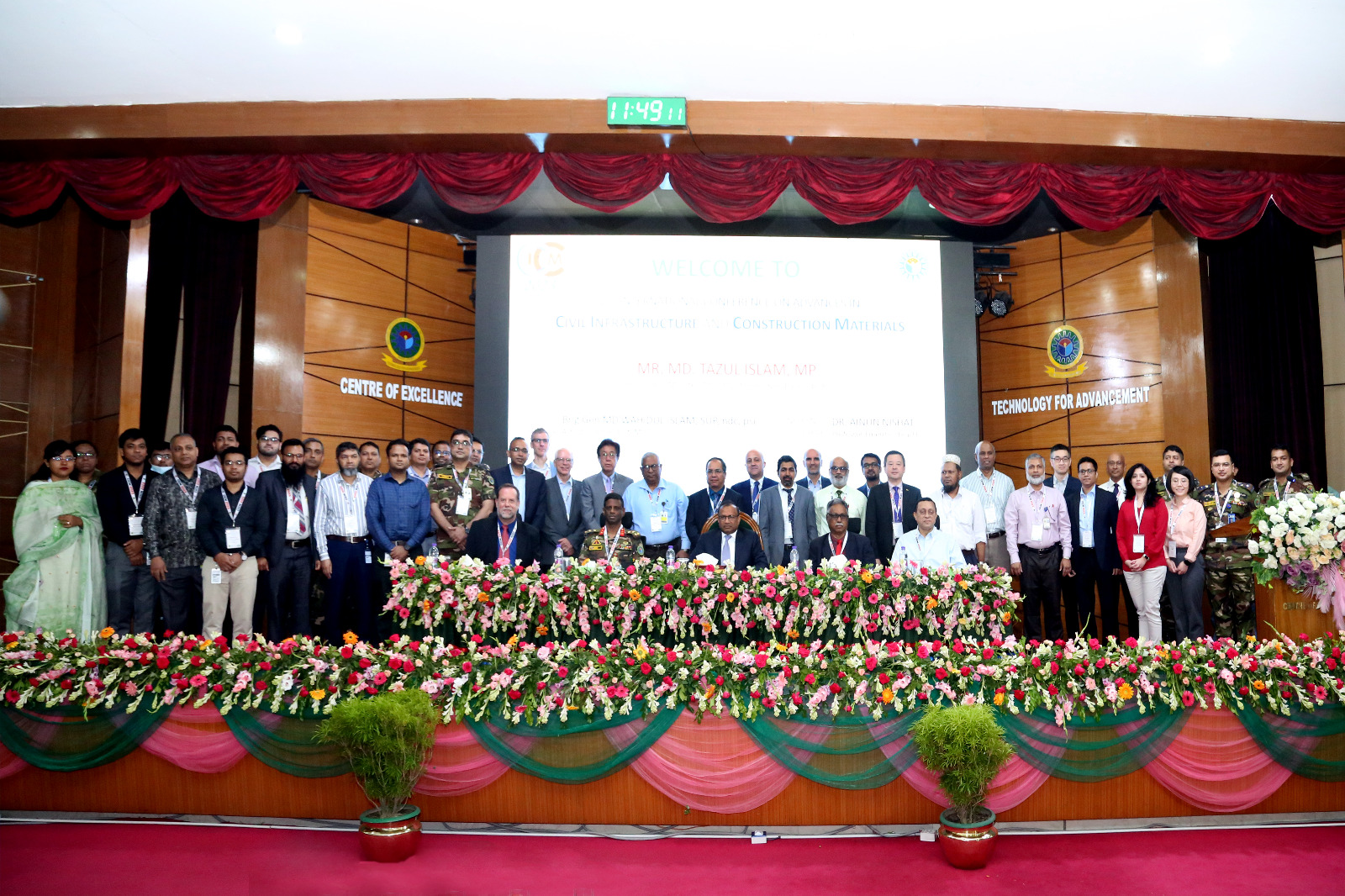2nd International Conference on Advances in Civil Infrastructure and Construction Materials (CICM 2023)
The civil engineering industry plays a pivotal role in shaping modern societies by designing, constructing, and maintaining essential infrastructure systems. As the world faces new challenges in sustainability, resilience, and urbanization, it is crucial for professionals and academics in the field to come together and share their insights, innovations, and knowledge. One such platform that fosters collaboration and showcases groundbreaking ideas is the 2nd International Conference on Advances in Civil Infrastructure and Construction Materials (CICM 2023) held at the prestigious Military Institute of Science and Technology (MIST).
Key Themes:
The conference covered a wide range of themes that are vital for the progress of civil infrastructure in the 21st century. These themes included:
-
Sustainable Infrastructure: The urgent need for sustainable infrastructure was a central topic at the conference. Speakers and researchers presented their work on incorporating green materials, energy-efficient designs, and eco-friendly construction practices.
-
Resilience and Disaster Management: With the increasing frequency of natural disasters, building resilient infrastructure has become a priority. Experts shared strategies to enhance infrastructure resilience and minimize the impact of disasters on communities.
-
Smart Cities and Urbanization: The world is witnessing rapid urbanization, leading to the emergence of smart cities. The conference explored innovative technologies and data-driven approaches to design urban infrastructure that improves the quality of life for citizens.
-
Transportation and Mobility: Efficient transportation systems are crucial for economic growth and reducing congestion. Participants discussed advancements in public transportation, traffic management, and the integration of autonomous vehicles.
-
Infrastructure for Developing Nations: Recognizing the challenges faced by developing countries, the conference highlighted cost-effective and scalable solutions to address the infrastructure needs of these regions.
Keynote Speakers:
Eminent personalities from the civil engineering domain graced the conference as keynote speakers. Their valuable insights and experiences added significant value to the event. The keynote speakers shared their expertise on various topics, inspiring the audience to think critically and creatively about addressing infrastructure challenges.
Presentations and Workshops:
The heart of the conference was the presentation sessions and interactive workshops. Researchers, engineers, and students from around the globe presented their research papers, case studies, and innovative projects. This platform provided an opportunity for attendees to learn about cutting-edge research, exchange ideas, and network with like-minded professionals.
The workshops were particularly engaging as they allowed participants to have hands-on experiences with the latest technologies and methodologies in civil infrastructure. From virtual reality simulations to 3D printing demonstrations, these workshops showcased the future possibilities of the industry.
The Civil Infrastructure Conference held at MIST brought together experts, scholars, and industry practitioners to share knowledge and address the pressing challenges in civil engineering. The event was a testament to the importance of collaboration and continuous learning in the ever-changing landscape of infrastructure development. As the world progresses, such conferences serve as essential catalysts for sustainable, resilient, and innovative infrastructure solutions that will shape the future of our societies. Through platforms like this, we can collectively work towards building a better, safer, and more sustainable world.

